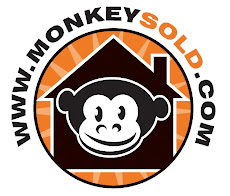The average single family home price is now $200,000, but the average condo price is $120,000. The problem is that as a owner of a condo you don;t have control over the condo fees.
Buying a condominium is not buying a free-standing, single family home. An element of politics enters your life when you choose to purchase a condo, as you will be turning over decision making on how the property will be maintained – or not maintained – to a board of directors. When you buy a condo, you become part of a condominium association, established by a declaration of condominium, with by-laws, rules, and fees, all governed by that board of directors.
A condominium is a legal concept where a group of people have banded together into a single economic unit, a community created as a corporation, which share the expenses for maintaining the common areas (sometimes called “common elements”) and separately, their own individual unit. Condo fees are established to maintain those common areas, and budget for major expenditures coming in the future.
Condo fees are established by the board of directors of the condo association, usually on an annual basis. They should take into account not only historical data on expenses, such as heating and lighting common areas, but also be forecasting future needs such as roof replacements and large projects that will face the association, as a whole, sometime in the future. The board also needs to adequately insure the common areas, so in case of a major catastrophe, the financial burden to the individual unit owners is limited.
These fees, or assessments, are charged to the individual unit owners on a regular basis, either monthly, quarterly, or annually. And sometimes, if the condo board has not been thinking ahead, via a special assessment that could literally bankrupt the individual unit owner and cause the condo association to foreclose on their unit for non-payment.
Condo fees will, inevitably, rise every year, since certain common area expenses will, inevitably, rise every year, too. Condominium fees (some call them “dues”) are akin to taxes, which (in a perfect world) are used for the common good, and improvement of the environment around you. Those dues also have legal weight, since if you fail to pay them, there is an automatic lien on your unit (usually) for the amount of those dues which the condo board has the authority to foreclose on.
Items common to every condominium budget:
* Utility expenses
* Common area maintenance expenses
* Common area reserves
* Insurance expenses
* Real estate taxes
* Audit fees
In larger condo associations, there may be income sources to consider, such as parking structures, pools, tennis courts, etc. The condo board determines whether or not those facilities will be available to the general public – for a fee – or solely available to the condo members and their guests. In some cases, there also may be ancillary facilities such as meeting rooms, party rooms, and such which the condo board can charge a fee for use.
Common area reserves are established for long-range planning – What happens when a critical component such as a central boiler or cooling system wears out, or the roof needs replaced?
The condo board can address the issue of the eventual failure of major components in one of two ways. They can ignore that eventually these components will fail, and put the full burden of that expense on the people owning units within the building at the time the component needs to be replaced; or, charge a projected amount, based on the expected life-expectancy of the component and the estimated cost to replace it to each unit owner annually, and invest those funds until such time as they are needed.
If the board fails to adequately reserve funds for the failure of a major component, they will be forced to levy a special assessment in order to pay for it. That special assessment could be a major hit, immediately due in full. This leaves the individual unit owner with the burden for planning, and saving, for that financial hit to occur.
This primer on condo fees, and what they cover, should prove valuable to you in analyzing whether condo ownership is right for you, whether a specific condominium association is where you want to be, and a good primer for a fledgling condominium board member struggling to understand what they’ve gotten themselves into by agreeing to be on the board.

View blog authority
Real Estate Blogs Directory
- Directory of real estate blogs and blogs of industries affiliated with and
serving the real estate industry.








1 comments:
This article is very informative. I didn't know of the possibility of unexpected repair costs coming up so suddenly, apparently in addition to the regular condo fee.
I'm thinking of buying a condo. It's the annual rise of the monthly fee that scares me. I'm renting at present. If the condo fee rises by about 2% every year, as I was told, am I not better off renting?
Post a Comment